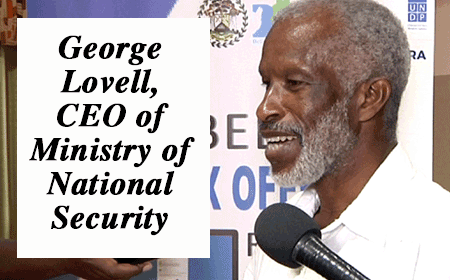BELIZE CITY, Mon. Nov. 26, 2018– Four years ago, in 2014, parliament passed an amendment to the Criminal Code chapter 10 which would allow the Ministry of National Security to track persons who were convicted of sexual offences with a database that would register each sex offender.
On Tuesday, November 20, a sensitization session was held for the introduction of this registry. The registry was funded by The United States Agency for International Development (USAID) and The United Nations Development Programme (UNDP), and it was developed under a project titled “Evidence-based Information Management on Citizen Security in Central America” or “InfoSegura.”
This project was reportedly designed so that policymakers in Central America and the Dominican Republic can have access to improved quality of information. Belize was added to this project in 2015 and, 3 years later, the registry is ready.
The Belizean public, however, won’t have access to this information, as it will be managed by the Minister of National Security and the Commissioner of Police. This seems counterproductive, considering that this information would be useful for parents to protect their children, and, in general, for members of the public to protect themselves.
According to George Lovell, the CEO of the Ministry of National Security, when the Criminal Code was amended, it laid out all the protocols and ways that the registry should be managed. Therefore, if any member of the public wants to have access to such information they have to be in “clear accordance with the legislation… and it is clear that those people, who will have access, will have access based on the approval of the minister and/or the commissioner of police.”
This means that if a person does want access to the registry, he or she will have to formally apply to either the Ministry of National Security or the Commissioner of Police and provide a reasonable explanation as to why they want that access.
Lovell explained that the reason that they can’t have the registry open to the public is that they cannot predict what certain persons might do once they have that information. He said, “People will have ulterior motives. People will have hate for certain individuals… so we have to be careful how we manage [this] information.”
Lovell said that the law is clear on who can and cannot access the registry and they will have to operate within that law until the law gives the opportunity for the public to access it.

